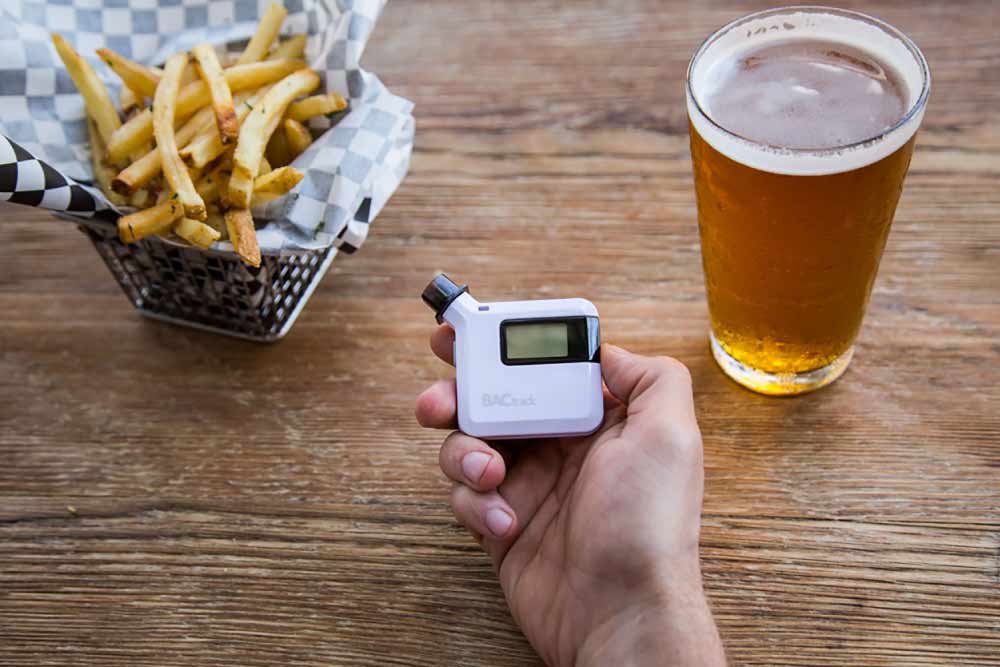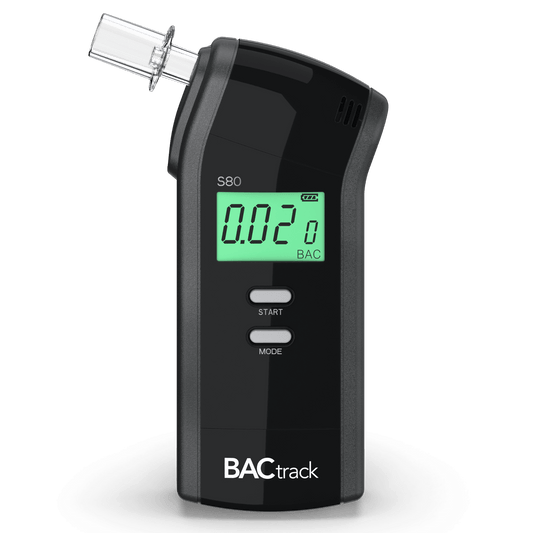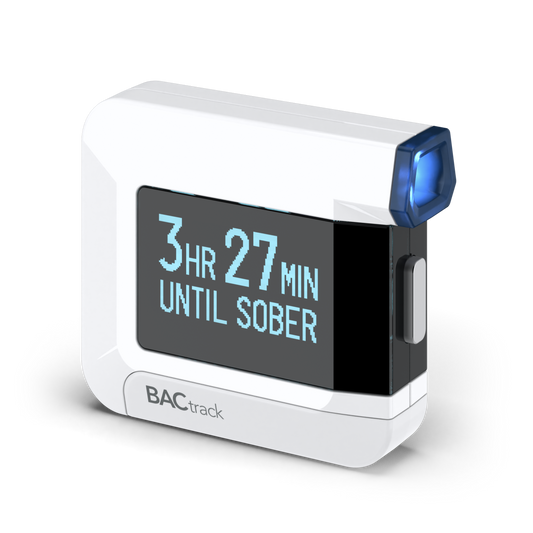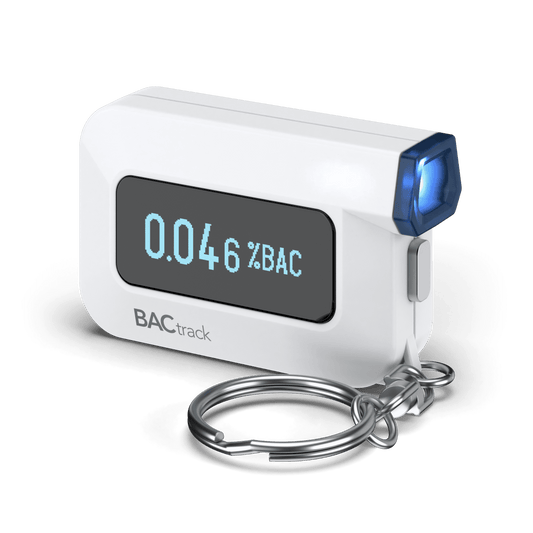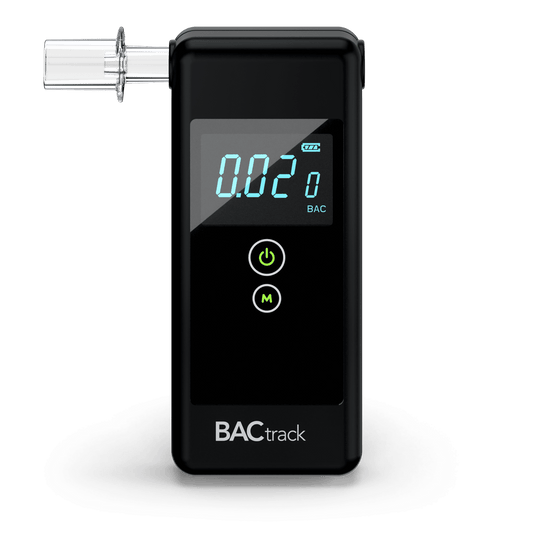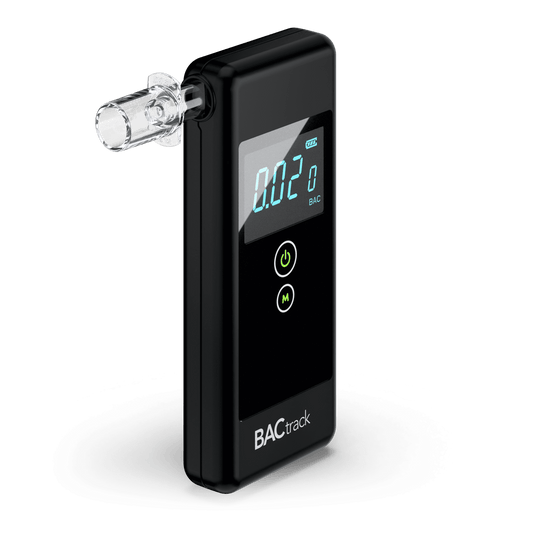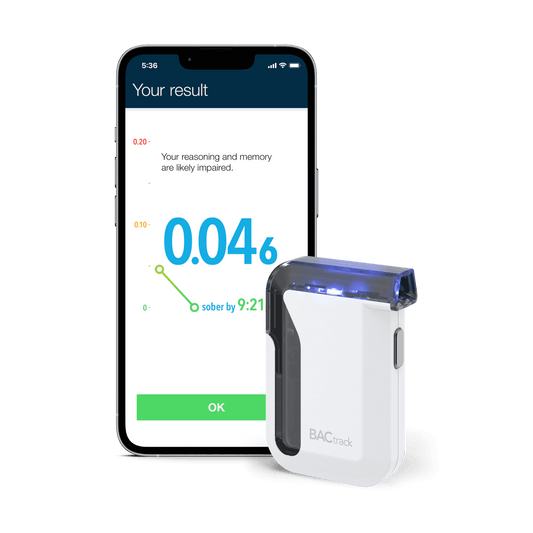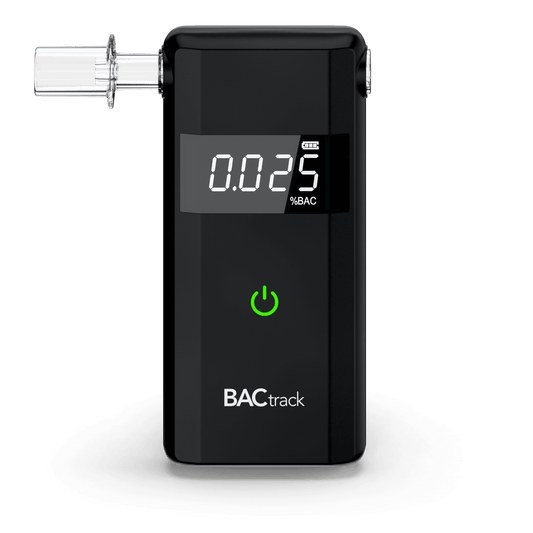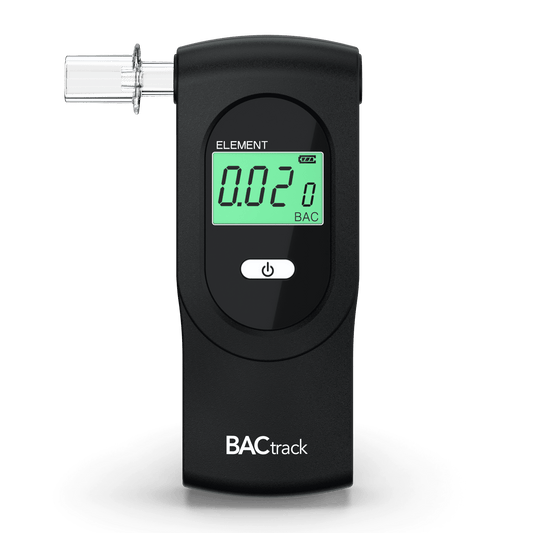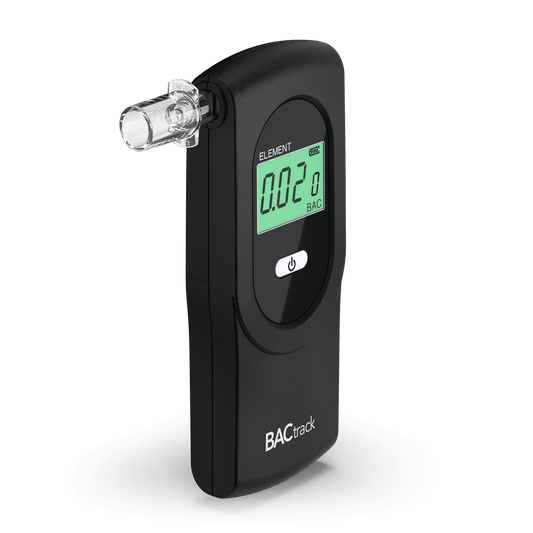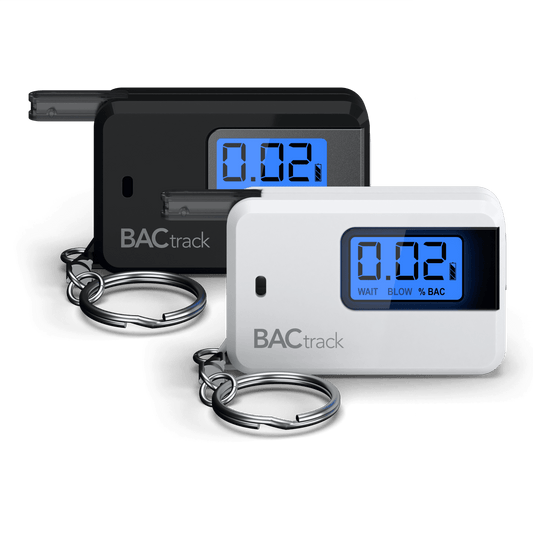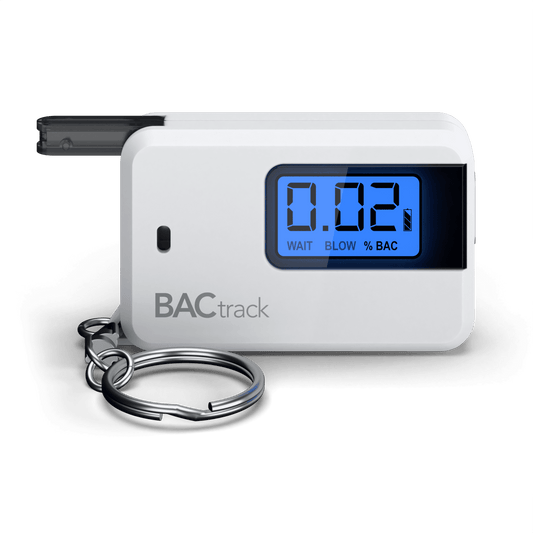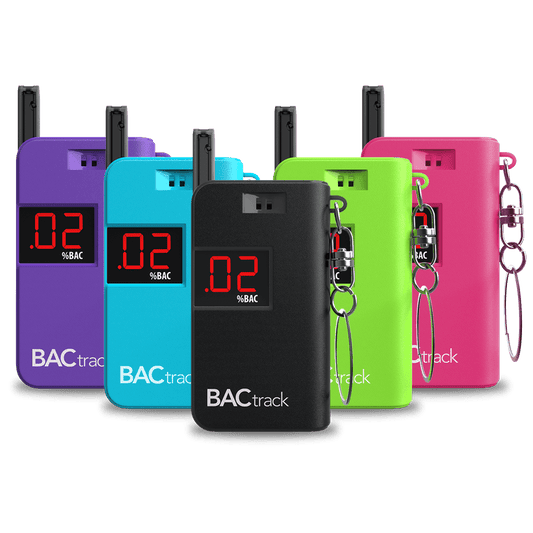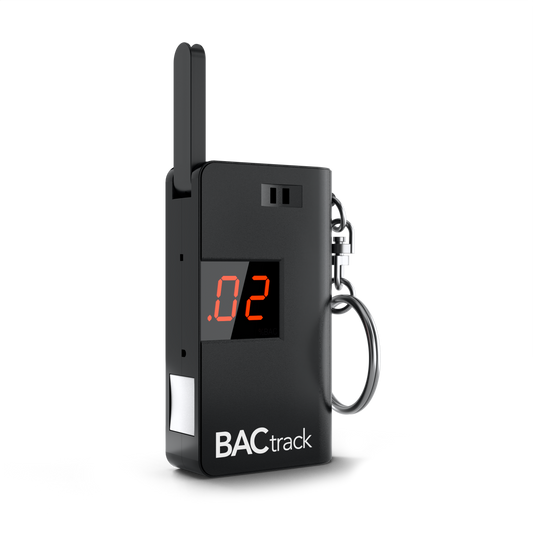Misconceptions persist about what breathalyzers can and can’t do and how a person might be able to "beat" one in a roadside test. The following separates fact from fiction.
Fiction:
Breath fresheners, breath mints, and mouthwash can mask alcohol and/or lower BAC readings.
Breath fresheners, breath mints, and mouthwash can mask alcohol and/or lower BAC readings.
Fact:
Better look before you gargle. Breath fresheners such as gum, mints, or sprays may cover up the odor, but they cannot change the amount of alcohol present in your breath. Some mouthwash even contains alcohol, and therefore can inflate BAC readings.
Better look before you gargle. Breath fresheners such as gum, mints, or sprays may cover up the odor, but they cannot change the amount of alcohol present in your breath. Some mouthwash even contains alcohol, and therefore can inflate BAC readings.
Fiction:
You can beat a breathalyzer test by sucking on a penny.
You can beat a breathalyzer test by sucking on a penny.
Fact:
This urban myth is surprisingly widespread, and also completely false. Placing a copper penny or any other form of currency under your tongue does not affect breathalyzer results whatsoever. Nor do other supposed elixirs, such as herbal formulas, charcoal pills, garlic, or snake oil.
This urban myth is surprisingly widespread, and also completely false. Placing a copper penny or any other form of currency under your tongue does not affect breathalyzer results whatsoever. Nor do other supposed elixirs, such as herbal formulas, charcoal pills, garlic, or snake oil.
Placing a copper penny or any other form of currency under your tongue does not affect breathalyzer results whatsoever.
Fiction:
Breathalyzers don’t work as well on smokers as they do on non-smokers.
Breathalyzers don’t work as well on smokers as they do on non-smokers.
Fact:
Acetaldehyde is an organic compound that occurs at significantly higher levels in the lungs of smokers than non-smokers. Some lower cost semiconductor breathalyzers may be affected by exceptionally high acetaldehyde levels, however Professional Grade BACtrack Breathalyzers are not. BACtrack's Professional Grade units, which utilize the same technology law enforcement officers use, are sensitive enough not to be thrown by this compound.
Acetaldehyde is an organic compound that occurs at significantly higher levels in the lungs of smokers than non-smokers. Some lower cost semiconductor breathalyzers may be affected by exceptionally high acetaldehyde levels, however Professional Grade BACtrack Breathalyzers are not. BACtrack's Professional Grade units, which utilize the same technology law enforcement officers use, are sensitive enough not to be thrown by this compound.
Fiction:
You can beat a breathalyzer by hyperventilating, exercising, or holding your breath before you blow.
You can beat a breathalyzer by hyperventilating, exercising, or holding your breath before you blow.
Fact:
An often-cited decades-old study found that hyperventilation and vigorous exercise did indeed lower subjects' BAC readings by as much as 10%. Conversely, holding their breath actually increased subjects’ BAC readings by up to 20%. Unfortunately, these activities can also render one light-headed and gasping for air – behavior that would undoubtedly capture the attention of law enforcement officers who suspect an individual of being under the influence. In addition, not blowing hard into a breathalyzer is little use, as the air pump technology present in BACtrack Professional Grade Breathalyzers can provide accurate BAC readings even with small breath samples.
An often-cited decades-old study found that hyperventilation and vigorous exercise did indeed lower subjects' BAC readings by as much as 10%. Conversely, holding their breath actually increased subjects’ BAC readings by up to 20%. Unfortunately, these activities can also render one light-headed and gasping for air – behavior that would undoubtedly capture the attention of law enforcement officers who suspect an individual of being under the influence. In addition, not blowing hard into a breathalyzer is little use, as the air pump technology present in BACtrack Professional Grade Breathalyzers can provide accurate BAC readings even with small breath samples.
Fiction:
Breathalyzer test results can be used in court.
Breathalyzer test results can be used in court.
Fact:
Breathalyzers are used as preliminary roadside screening tools to help law enforcement officers assess drivers’ suspected of being drunk. Breath test results may help an officer determine if a subject should be arrested for suspicion of DUI, but results are not always admissible in court.
Breathalyzers are used as preliminary roadside screening tools to help law enforcement officers assess drivers’ suspected of being drunk. Breath test results may help an officer determine if a subject should be arrested for suspicion of DUI, but results are not always admissible in court.
BACtrack Breathalyzers being put to the test by a company of lawyers on the Dr. Phil Show.
Fiction:
Breathalyzers only measure alcohol – and nothing else.
Breathalyzers only measure alcohol – and nothing else.
Fact:
Substances that contain small amounts of alcohol can produce false positives, for example some mouthwashes and toothache medicines. In addition, some personal breathalyzers may measure compounds that are similar in molecular structure to alcohol, such as acetone, which is present in the breath of diabetics and persons on high protein diets. False results can also be triggered by paint fumes, varnish, cleaning chemicals that contain rubbing alcohol, and some plastics and adhesives.
Substances that contain small amounts of alcohol can produce false positives, for example some mouthwashes and toothache medicines. In addition, some personal breathalyzers may measure compounds that are similar in molecular structure to alcohol, such as acetone, which is present in the breath of diabetics and persons on high protein diets. False results can also be triggered by paint fumes, varnish, cleaning chemicals that contain rubbing alcohol, and some plastics and adhesives.
Fiction:
Breathalyzers are 100% accurate.
Breathalyzers are 100% accurate.
Fact:
All commercial breathalyzer products can reliably determine if alcohol is present in a breath sample. But the accuracy of breath test results can vary substantially. Breathalyzer models are generally divided into two categories: for personal use or professional use. Professional-grade breathalyzers offer extremely high accuracy and sensitivity, and employ the same advanced fuel cell sensor technology that is used by law enforcement for roadside alcohol testing. Because prices for fuel cell devices have come down in recent years, they are increasingly popular for personal use. Breathalyzers that use semiconductor sensors are usually associated with personal use. (Read more about breathalyzer sensor types.) All breathalyzers must be calibrated periodically in order to maintain accuracy, and failure to do so can affect BAC readings.
All commercial breathalyzer products can reliably determine if alcohol is present in a breath sample. But the accuracy of breath test results can vary substantially. Breathalyzer models are generally divided into two categories: for personal use or professional use. Professional-grade breathalyzers offer extremely high accuracy and sensitivity, and employ the same advanced fuel cell sensor technology that is used by law enforcement for roadside alcohol testing. Because prices for fuel cell devices have come down in recent years, they are increasingly popular for personal use. Breathalyzers that use semiconductor sensors are usually associated with personal use. (Read more about breathalyzer sensor types.) All breathalyzers must be calibrated periodically in order to maintain accuracy, and failure to do so can affect BAC readings.
The only real way to "beat" the breathalyzer is to stay informed of your BAC by owning and using a BACtrack every time you drink. By keeping informed of how your body processes alcohol and knowing your estimated BAC at all times, you can make more informed decisions.

